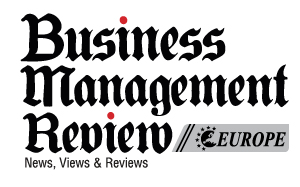BUSINESSMANAGEMENTREVIEW.COMMARCH 20247Art & GraphicsAmelia StewartDeclan ColeJaxon JaseManaging EditorSummer Gutierrez EditorialLouis BeckerLeah JaneAlfred MardinRachael ClarkCopyright © 2024 ValleyMedia, Inc. All rights reserved. Reproduction in whole or part of any text, photography or illustrations without written permission from the publisher is prohibited. The publisher assumes no responsibility for unsolicited manuscripts, photographs or illustrations. Views and opinions expressed in this publication are not necessarily those of the magazine and accordingly, no liability is assumed by the publisher thereof.Editorial*Some of the Insights are based on the interviews with respective CIOs and CXOs to our editorial staffSummer Gutierrez Managing Editoreditor@businessmanagementreview.comIn the realm of business operations, compliance remains a cornerstone of stability and trust. As the regulatory landscape continues to evolve, enterprises face a perpetual challenge to adapt and adhere to the latest standards. In recent times, the focus on business compliance has sharpened, driven by a multitude of factors ranging from technological advancements to shifting societal expectations.Technological innovations have revolutionized how businesses operate, and compliance is no exception. From AI-driven analytics to blockchain-based verification systems, businesses are leveraging cutting-edge technology to streamline compliance processes. Automation tools are increasingly adopted to ensure adherence to regulations while minimizing manual errors. Moreover, advancements in data analytics enable proactive risk management, empowering enterprises to identify and address compliance issues before they escalate.In recent years, there has been a surge in demand for businesses to demonstrate their commitment to ESG principles. Investors, consumers, and regulatory bodies are increasingly scrutinizing companies' ESG practices, viewing them as indicators of long-term sustainability and ethical conduct. Businesses are thus compelled to integrate ESG considerations into their compliance strategies, encompassing areas such as environmental stewardship, social responsibility, and corporate governance.In an era defined by rapid change and heightened scrutiny, businesses must prioritize compliance as a fundamental pillar of their operations. Embracing technological innovation, navigating regulatory complexities, and upholding ethical standards are essential elements of an effective compliance strategy. By staying abreast of the latest trends and proactively addressing compliance challenges, enterprises can foster trust, mitigate risks, and position themselves for long-term success in an increasingly regulated business landscape.In this edition, we have featured MRB Compliance Consulting. Backed by a wealth of knowledge and practical experience in energy trading compliance, MRB Compliance Consulting helps companies seamlessly manage regulatory requirements and operate with reduced risk in a "fit for purpose" compliance programs.The Evolving Landscape of Business ComplianceEmail:sales@businessmanagementreview.comeditor@businessmanagementreview.commarketing@businessmanagementreview.com March - 18 - 2024 Volume 04 - Issue 3 [ ISSN 2831-848X] Published by ValleyMedia Inc.To subscribe to Business Management Review Visit http://businessmanagementreview.com/subscribe/
< Page 6 | Page 8 >
< Page 6 | Page 8 >


